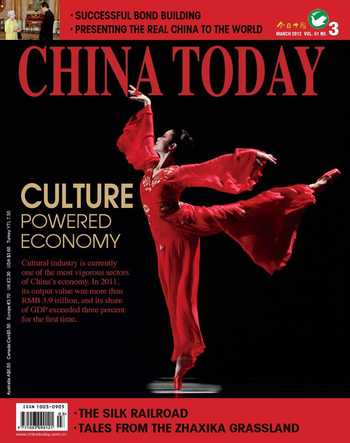At 40 We Should have no more doubts
CONFUCIUS said, “At 30 I stood firm; at 40 I had no more doubts.” Over two millennia later, 2012 will witness ambassadorial diplomatic relations between the PRC and the UK reach the ripe old age of 40, and these words still give pause for thought. Full diplomatic relations between the two countries have gone through almost four decades of vicissitudes, after which one should have no more doubts about the determination of the people of both countries in strengthening bilateral ties.
The United Kingdom was among the first European countries to recognize and establish diplomatic relations with the Peoples Republic of China. The reason for this, as far as I can tell, lies in the long history of contact between the two countries. As early as 1637, British fleets carried shiploads of sugar from Guangzhou, and the Qing Dynastys embassy was established in London in 1877, the first diplomatic mission abroad in Chinese history.
To most Chinese people, however, Sino-British relations were not pleasant in their early years and involved much inequality and suffering on the part of their forefathers. Losing two Opium Wars during the mid-19th century, China was forced to establish five treaty ports open to trade with foreign countries, which resulted in the ruin of Chinas traditional agriculture and local craftsmen. The signing of a series of unequal treaties starting with the Treaty of Nanking dragged China into even worse plight.
A relationship of equlity finally came into being after the founding of the PRC. In 1972 China and UK resumed full diplomatic relations. In 1984 the two countries settled their last historical dispute – sovereignty over Hong Kong – with the signing of the Sino-British Joint Declaration, and the enclave was then handed back to China in 1997.
Until recent decades, British contact with China was limited almost exclusively to merchants eager to make profits trading with this insular nation. With the introduction of the reform and opening-up policy in 1978, however, communication between the common people of the UK and China started up and has only grown stronger since then, to a great extent because of the popularity of the English language.
The very first foreigner I met was a student from London who taught me conversational English. He was quite an easy-going person from an ordinary British family, and became the first in a series of mainly British foreign friends. As I met and made friends with more foreigners, I came to realize that human beings have more or less the same likes and dislikes, and that the only real differences are those in customs and conventions. Fully aware of this, my former English teacher and I have been on very good terms for many years.
Now that we are celebrating 40 years of ambassadorial diplomatic relations between the two countries, we should have no more doubts about our bilateral ties and relations. Or do we? International and interpersonal relationships bear some resemblance to each other, including that they should be based on mutual knowledge and understanding. Although, as mentioned above, Sino-UK relations enjoy an age-old history, it seems that there was no true knowledge, let alone deep understanding, shared by the two countries, for a long period. There is still much ignorance and misunderstanding between us at present.
This certainly can be attributed in part to the cultural difference between us, but the ideological divide is also a major reason. Because of this we cannot say that we have no more doubts about our relationship, but people from both sides are making painstaking efforts to change this. Political and economic communication between China and the UK has experienced huge developments during the past few decades, and cultural exchange in particular has contributed a lot to our mutual understanding. An excellent example of this is the China Book International project launched in 2005, which is designed to encourage foreign publishers to publish China-related books by subsidizing their translation, and to donate China-related books to overseas libraries. This project is an important government initiative intended to facilitate Chinese culture traveling abroad and to increase foreign peoples understanding of China.
Cambridge University Press is one of the foreign publishers that have proved most responsive to this initiative. The Cambridge China Library established by Stephen Bourne has translated and published more than a dozen books on China, including such outstanding and popular works as The History of Chinese Civilization, the Science and Civilisation in China series and The Cambridge History of China. We believe that the expansion of the Cambridge China Library will surely bring even more books from and about China to enthusiastic readers in the Western world.
Certainly, cultural exchange and communication between China and the UK go far beyond just books, but my own expertise and personal contact with the UK have focused heavily on the publishing industry, where I have worked for many years. The 2012 London Book Fair, one of the worlds biggest annual book and media fairs, second only to the Frankfurt Book Fair, will be held in April and has named China as the focus of this years events. Chinese publishers will bring their books, full of the richness and brilliance of Chinese culture, as well as the Chinese peoples friendship and the achievements of Chinas reform and opening-up, to this grand meeting of publishers from all over the world.
This is not only a chance to strengthen our collaboration with British publishers, but also an opportunity to deepen British peoples understanding of China, for only in this way can we really be free of doubts about and ignorance of each other. As we approach the 40th anniversary of full diplomatic relations between the UK and China, it is my hope that we can achieve this, and I believe it is also the hope of my friends in the UK, be they inside or outside of the publishing industry.

